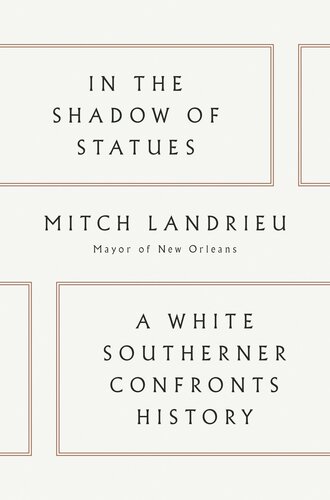
In the Shadow of Statues
A White Southerner Confronts History
کتاب های مرتبط
- اطلاعات
- نقد و بررسی
- دیدگاه کاربران
نقد و بررسی

February 15, 2018
"Has the white South truly reckoned with the Civil War?" The mayor of New Orleans, scion of an old progressive family, writes of the controversy surrounding his city's removal of monuments to the Confederacy.Landrieu acquired national renown during the fraught post-Charlottesville spring of 2017 when he delivered a reasoned if quietly defiant speech about the reasons that New Orleans decided to remove four Confederate monuments, a decision that "wasn't sitting well with some of the powerful business interests in the state." In fact, some of the contractors who bid to do the removal work came under the threat of death, even as inflamed neo-Confederates and their allies protested what Landrieu defended as the prerogative of a democratically elected city government. That opposition, the author unhesitatingly declares, represents institutionalized racism: "You may have the law on your side, but if someone else controls the money, the machines or the hardware you need to make your new law work, you are screwed." African-Americans, he adds, know all about this perversion of justice, but it's an eye-opener for others who have not experienced that update of the peculiar institution. The statues--of Robert E. Lee, Pierre Beauregard, Jefferson Davis, and the "Reconstruction-era organization of racial militants" called the White League--may disappear, but the attitudes of those defending them will take longer to erase, particularly given the intransigent leadership of people like David Duke. Landrieu charts his family's long history of racial fairness; his father, as he recalls, "voted against twenty-nine Jim Crow laws at the [Louisiana] legislature in 1960," falling afoul of the segregationist leadership. The author concludes by noting that while the tide seems to be turning, the conflict endures, with "domestic terrorism" afoot as "part of the ho-hum racism that eats through our country every day."A powerful, welcome manifesto in the cause of a new and better South--and a "better America."
COPYRIGHT(2018) Kirkus Reviews, ALL RIGHTS RESERVED.

March 15, 2018
Landrieu, in his final year as mayor of New Orleans, has written a personal and political memoir focusing largely on his developing awareness of racial issues that eventually led to his involvement in removing four controversial public statues. Landrieu recognized the city's racial and social tensions during his childhood in the 1960s and 1970s. In the 1980s, while his father was active in state and national politics, the author became aware of larger national issues and witnessed the rise of the David Duke. As a Louisiana legislator and lieutenant governor in the 1990s, Landrieu followed his father and his sister into politics. Finally, serving as mayor has forced him to deal with the aftermath of Hurricane Katrina and to confront racial tensions that were manifest in the fight over Confederate statues. Unfortunately, partly because of its episodic structure, this volume fails to reveal Landrieu's motivation for choosing his career path beyond the influence of various role models, particularly his father, in shaping his values. Beyond that, the text is marred by sloppy syntax and overall careless editing, making for a sometimes poorly written account. VERDICT Primarily recommended for those interested in Landrieu's career and New Orleans politics.--Charles K. Piehl, Minnesota State Univ., Mankato
Copyright 2018 Library Journal, LLC Used with permission.

























دیدگاه کاربران